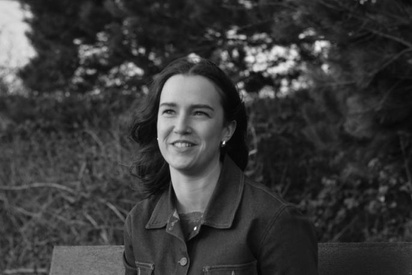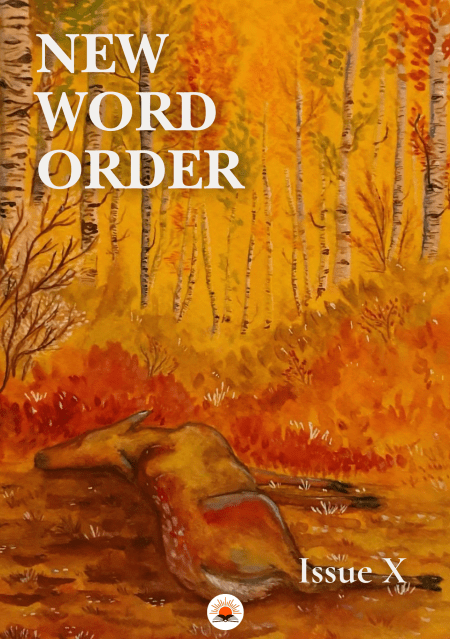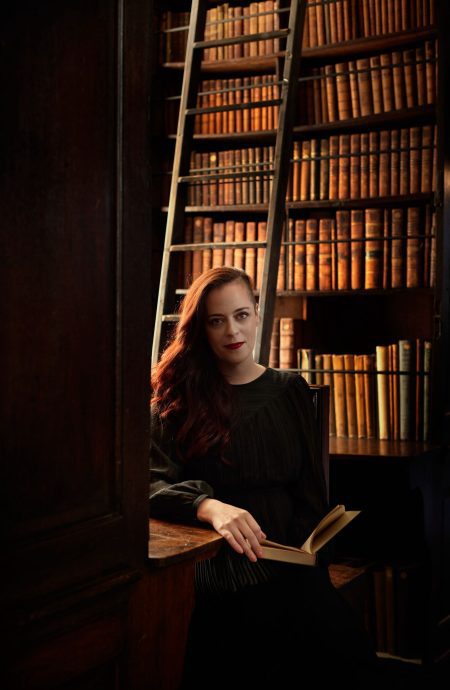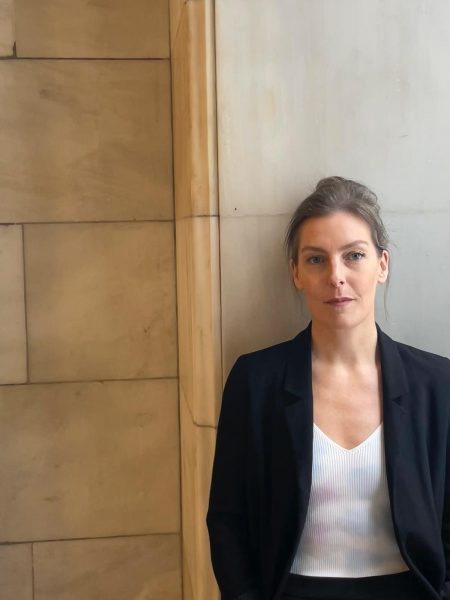UCD’s own English with Creative Writing student, Katie Farrell is a writer to watch. Being published in OddBall Magazine, HG Wells Short Story Anthology in 2022 and UCD’s Caveat Lector in all four years of college she is only at the beginning of her writing Journey. A friend and New Word Order fiction editor Laura Kiely sat down to chat with Katie about her journey so far and her approach to writing. While there is a lot to learn from established writers, talking to writers trying to break into the industry can be just as insightful.
What age were you when you first started writing?
I started writing when I was 11 years old. I had been dancing in a ballet school from the age of three and I was convinced that would be my career, but when my dad had to pull me out, I clung to writing to fill that creative void. My primary school teacher was also an amazing woman who saw some potential in me that I didn’t see. I wrote for fun, I was only a kid at the time, but she urged me to submit a piece to the Bord Gáis Energy Theatre script competition. I was shocked when I placed in the top 100, and that was definitely the catalyst for my writing journey.
What do you draw the most inspiration from?
I draw a lot from my everyday life, which sounds boring I know, but I’m currently working on a short story based on my current workplace. It’s a separate project from college, too, which is nice. I’ve been enjoying creating spaces for a reader to be in. I want them to feel as though they are there, not just that they’re imagining, which is about the most difficult thing to do as a writer.
Your piece ‘An Evening in the Café’ for New Word Order focuses a lot on space. How did you decide what way to construct it?
Again, it was inspired by an experience I had where I overheard an unsettling conversation, but it was, of course, altered and dramatized for the piece. I think I was reading Camus when I wrote it and I’m still at the stage in my writing journey where my style is somewhat malleable, so perhaps elements of his style seeped into mine, although I might sound a bit arrogant saying something like that. What I mean is that he focuses greatly on the atmosphere. The beach scene in The Stranger captures the atmosphere so fantastically, but his language is simple and his sentences are concise. I’ve been gravitating towards accessibility more and more, I would say. I finally gave up the idea that convoluted words necessitate good writing. That couldn’t be further from the truth.
In what ways do you think you capture the atmosphere in your piece?
I tried focusing on small squares of detail if that makes sense, almost like a slideshow. The cobblestones are mentioned, and then they are described, the same with the croissant. Different textures, smells, and sounds combined create the café atmosphere. I wanted to capture the stuffy indoors with the cold rain outside. It’s very Dublin.
When you write your pieces, who do you imagine your audience to be?
That’s a really interesting question. I think I imagine my audience to be similar to the characters that I write weirdly enough. For example, if I’m writing about an older woman I might imagine how an older woman would respond to that character, and whether or not she would deem the character believable. I would hate to misrepresent someone.
Is there a certain ritual or process you use before you begin your writing process?
I don’t think so, not exactly. I mean I definitely have to play music, usually classical. I love the Oppenheimer soundtrack if I’m being honest. I think Ludwig Goransson is a genius. I really enjoy Joep Beving, too. His album Solipsism was hugely influential when I was working on my first book.
When you say book, have you completed a novel or was that just an experimentation with the form?
I haven’t completed that book, no, and it haunts me every day. I have all of the characters following me around in my head and I can so clearly see the main location where the story unfolds, but I can’t bring myself to sit down and work on it. Or perhaps I won’t, it’s like a silent protest. But the book made it to 20,000 words so it has a fair amount of potential. I started writing it when I was seventeen and it’s very reflective of that period in my life.
What is the most valuable piece of knowledge you’ve gained since starting this course that you wouldn’t have gained otherwise?
I would say that I’ve learnt to accept criticism. I found that extremely difficult in the first two years, as I was known as “the writer” in secondary school, so when I arrived in college and was surrounded by many writers I felt overwhelmed. I took criticism quite personally and I definitely beat myself up a lot if I didn’t receive a shower of praise. Now, I want my work to be picked apart and it makes me anxious to receive a vague compliment or a generic response. What am I meant to do with ‘very good’ or ‘well written?’ That’s not to say I hate compliments, I always appreciate when people enjoy my work, but it doesn’t help me improve, which is what I’m aiming for.
Out of your work published since the start of your writing journey, what was your favourite and why?
I would say my short story Discernment which was published in the HG Wells anthology is my favourite, mainly because it was my first printed piece in an international publication. It’s also a great example of how intensely your writing style and technique can transform in two years. I re-read Discernment a few days ago and I was initially appalled at how ‘bad’ it was. But the guys at the competition didn’t think it was bad, so why be so hard on myself? Instead, I can use it as a marker of my progress, which is sweet.
We’re going to wrap up with one final question. If you could take my place, and interview any writer in the world, who would it be and why?
Oh, wow. I would say Donna Tartt, simply because I struggle a lot with time pressure and feeling like I need to be churning out work constantly, and I’d love to ask her how she combats that pressure. She takes an entire decade to write one novel, and you can really tell. She’s phenomenal.



